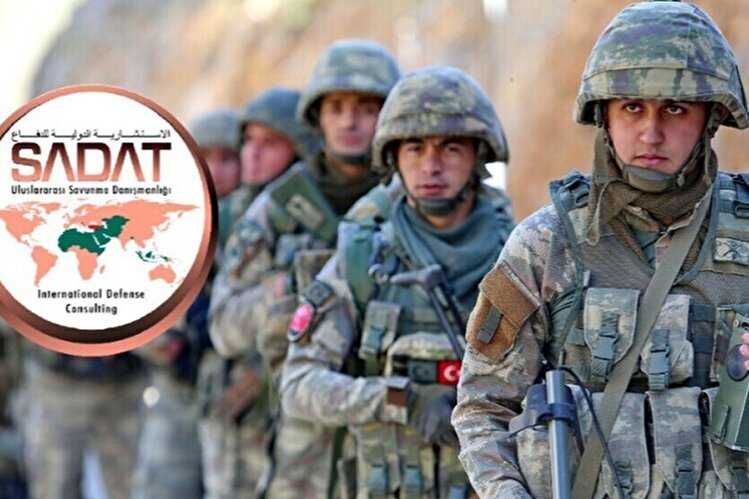Threat of Erdogan’s Private Army to the Regional Balance of Power
TEHRAN (Defapress) - The SADAT International Defense Consultancy, founded in 2012 by Adnan Tanrıverdi, a retired Turkish Brigadier General, along with 22 former officers and non-commissioned officers, is known as a private military and security company in Turkey. Headquartered in Istanbul, SADAT has earned the nickname "Turkey’s Wagner" due to its extensive activities in military consulting, armed forces training, and logistical support across the Middle East and Africa. Its close relationship with the Turkish government and the Justice and Development Party (AKP), especially President Recep Tayyip Erdoğan, has made it a key instrument in advancing Ankara’s foreign policy.

The military-security company SADAT has operated in several countries, including Syria, Libya, Somalia, Qatar, Azerbaijan (Nagorno-Karabakh), and other African nations.
In Syria, since 2012, SADAT has trained Syrian fighters in camps in Marmara and Istanbul to fight against the Bashar al-Assad regime. Acting as an unofficial arm of the Turkish military, it has supported rebel groups like the Free Syrian Army (now the Syrian National Army) in operations such as Euphrates Shield, Olive Branch, and Peace Spring.
In Libya, SADAT deployed trained Syrian militants under its banner to provide strategic advice to the Government of National Accord (GNA), helping Ankara counter the forces of General Khalifa Haftar. In doing so, it has played a crucial role in advancing Turkey’s economic and strategic interests in the Eastern Mediterranean.
In Somalia, the company has established training bases for security forces and participated in counterterrorism efforts against groups like Al-Shabaab, part of Turkey’s broader strategy to expand its influence in the Horn of Africa.
In Qatar, SADAT has contributed to military training under defense agreements, strengthening Ankara-Doha military ties.
There are also reports of its involvement in Azerbaijan (2020 Nagorno-Karabakh war).
Additionally, SADAT has trained military forces in other African countries, particularly in coastal and desert regions, aiming to compete with private military companies like Wagner.
SADAT’s operations are complex and multifaceted due to their opaque nature and close ties to the Turkish government. The company enjoys strong state support, as evidenced by Adnan Tanrıverdi’s appointment as Erdogan’s top military advisor after the failed 2016 coup, a sign of its deep influence within Turkey’s power structure. SADAT allows Turkey to operate indirectly in sensitive regions where direct military involvement could provoke backlash, expanding its political and military footprint across the Middle East, Africa, and the Caucasus.
However, SADAT faces criticism over its operational limitations compared to major private military firms like Blackwater, as well as its lack of transparency in operations, funding, and contracts.
Various political factions in Turkey, particularly the Republican People’s Party (CHP), accuse SADAT of being "Erdogan’s private army," serving his political agenda. These allegations intensified after reports emerged of SADAT’s role in suppressing coup plotters on the Bosphorus Bridge in 2016.
In Libya and Syria, there have been reports of human rights violations by SADAT-trained groups, including civilian casualties, documented in Amnesty International reports, further tarnishing the company’s reputation. Its alleged ties to Turkey’s National Intelligence Organization (MIT) have also fueled suspicions of covert government operations.
Moreover, SADAT’s lack of accountability and its role in escalating tensions with countries like Egypt and the UAE, due to its support for Libya’s GNA, have drawn further criticism.
Through SADAT, Turkey seeks to amplify its regional influence while avoiding direct international scrutiny or legal accountability. This strategy allows Ankara to meddle in the political affairs of other governments, particularly in conflict zones.
However, such an approach risks destabilizing the regional balance of power, as SADAT’s opaque military activities could exacerbate tensions, instability, and armed rivalries in the Middle East and Africa. This is especially concerning in volatile regions like Libya and Syria, where multiple actors with competing interests are already engaged, potentially leading to severe consequences for regional stability.
